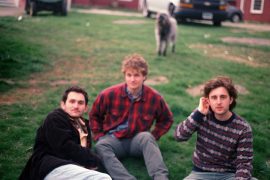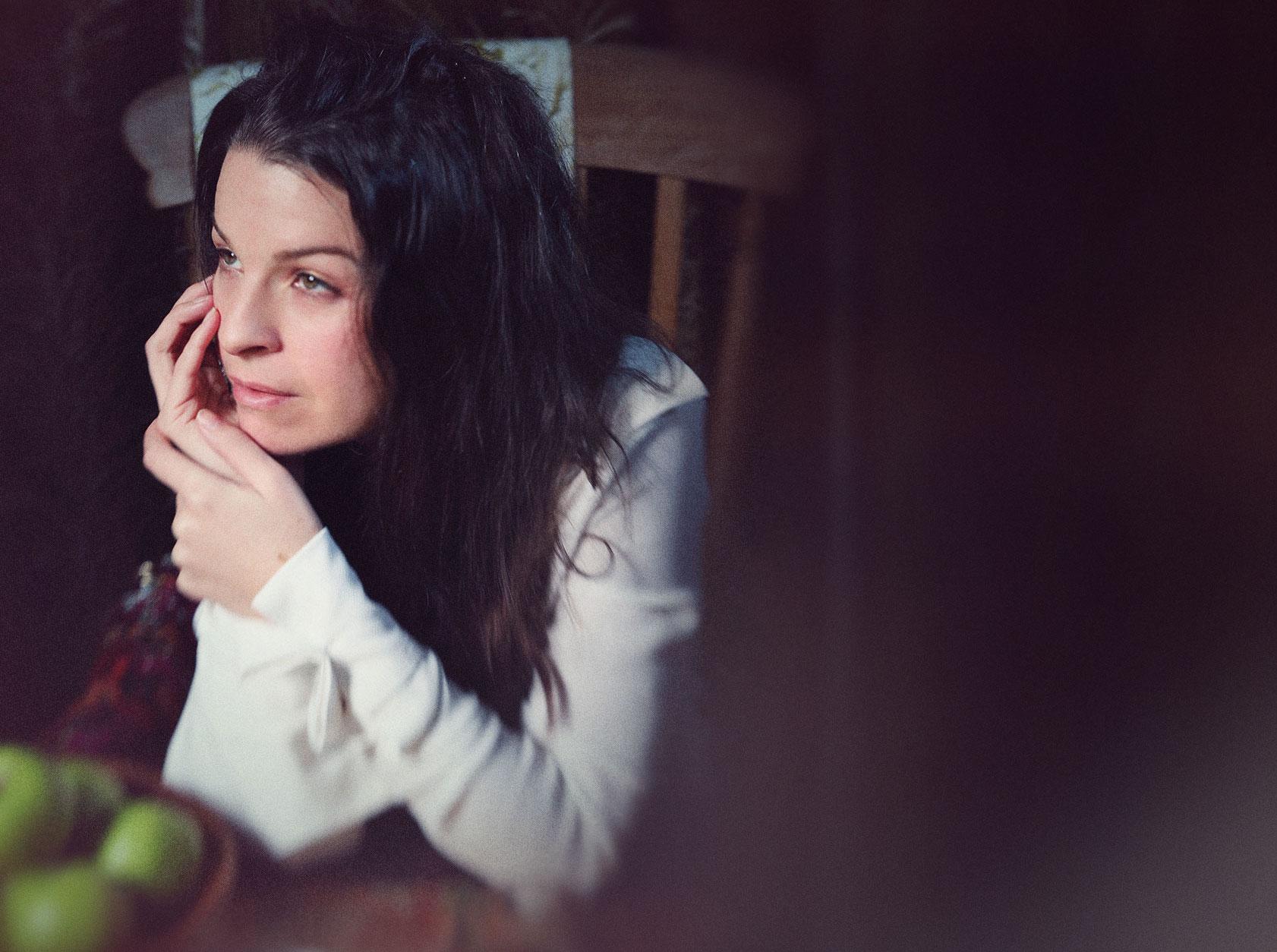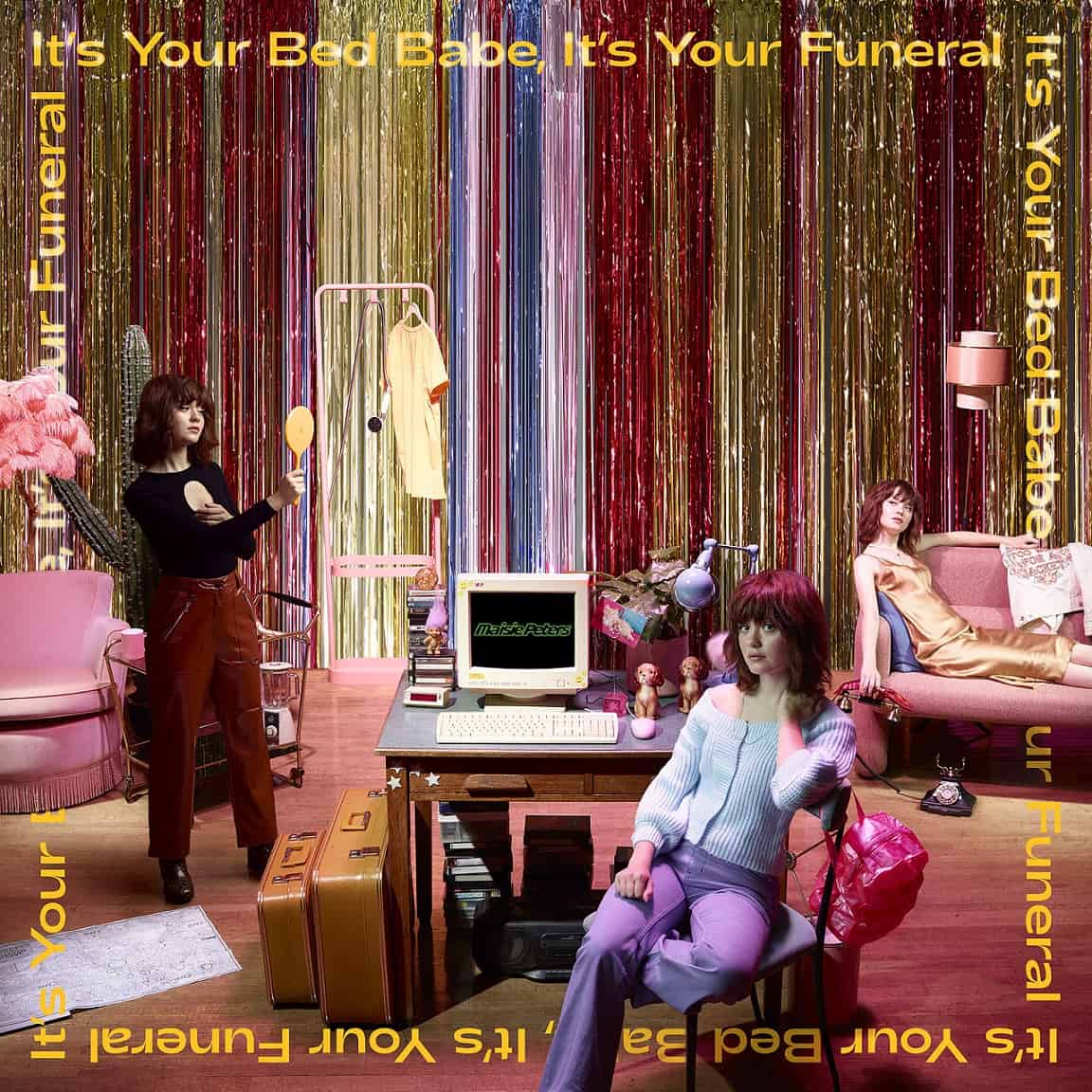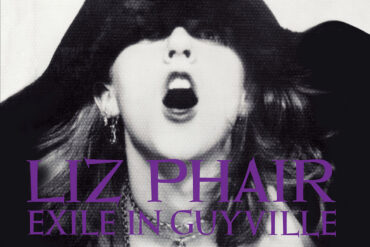Singer/songwriter Alice Merton has a healthy habit of diving deep into herself for her art, spilling her heart and soul through polished pop-driven music that aches with raw honesty and unbridled authenticity.
Stream: ‘S.I.D.E.S.’ – Alice Merton
There really is something invigorating about Alice Merton’s music.
It’s refreshing to hear a soul so powerfully expressed in song, transported to our ears with effortless ease – though we know that process is hardly as easy as it seems. From 2019’s critically acclaimed debut album MINT to last year’s stunning sophomore LP S.I.D.E.S. and even her latest singles, the German-born, British-based singer/songwriter has a healthy habit of diving deep into herself for her art, pouring out her heart and soul through polished pop-driven music that aches with raw honesty and unbridled authenticity.
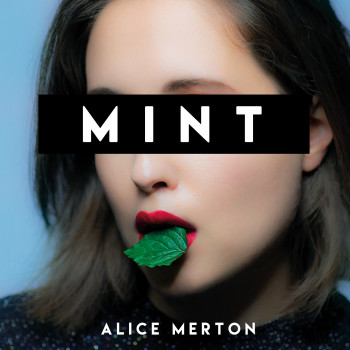
“There is strength in being vulnerable and open about emotions,” Merton shares. It’s sage advice applicable to all parts of our lives, and guidance she’s found particularly helpful as she’s progressed in her music career over these past five years.
Vulnerability has always come second nature for Merton, proving an unintentional selling point from the get-go. “The highs are high and the lows are low, but what’s perhaps most remarkable about MINT is how refreshingly honest it is,” Atwood Magazine wrote in a 2019 interview. “Alice Merton holds nothing back in her music.”

MINT served as a powerful introduction to Alice Merton the human being, its songs often plunging into her childhood and exploring relatable growing pains.
Its successor, S.I.D.E.S., is even more intimate and unfiltered, finding Merton plunge ever-deeper into her present self as she offers a kind of snapshot of life in the moment.
“In German, there’s actually a really good word for it,” she smiles. “It’s called momentaufnahme, which is like taking a picture of a certain time of your life and keeping it as a picture of that time, and that’s kind of what this album is for me.”
She continues, “I really feel like it was more of an introspective album where I looked at my own behavior, I looked at myself and how I was as a person during the pandemic, and even before the pandemic, and realizing a lot of what I was doing or questioning a lot of what I was doing. I think that really helped me see inside of who I am and why I act a certain way, and why I have these panic attacks. It was a lot of analytical stuff about my own self.”
Even its artwork – a provocative image of Merton’s face melting onto an adjacent table, designed by Turkish surrealist photographer and graphic designer Aykut Aydogdu – seems to hint at her own vulnerability; she’s literally spilling forth in all directions, her innermost self no longer capable of being contained within her body.
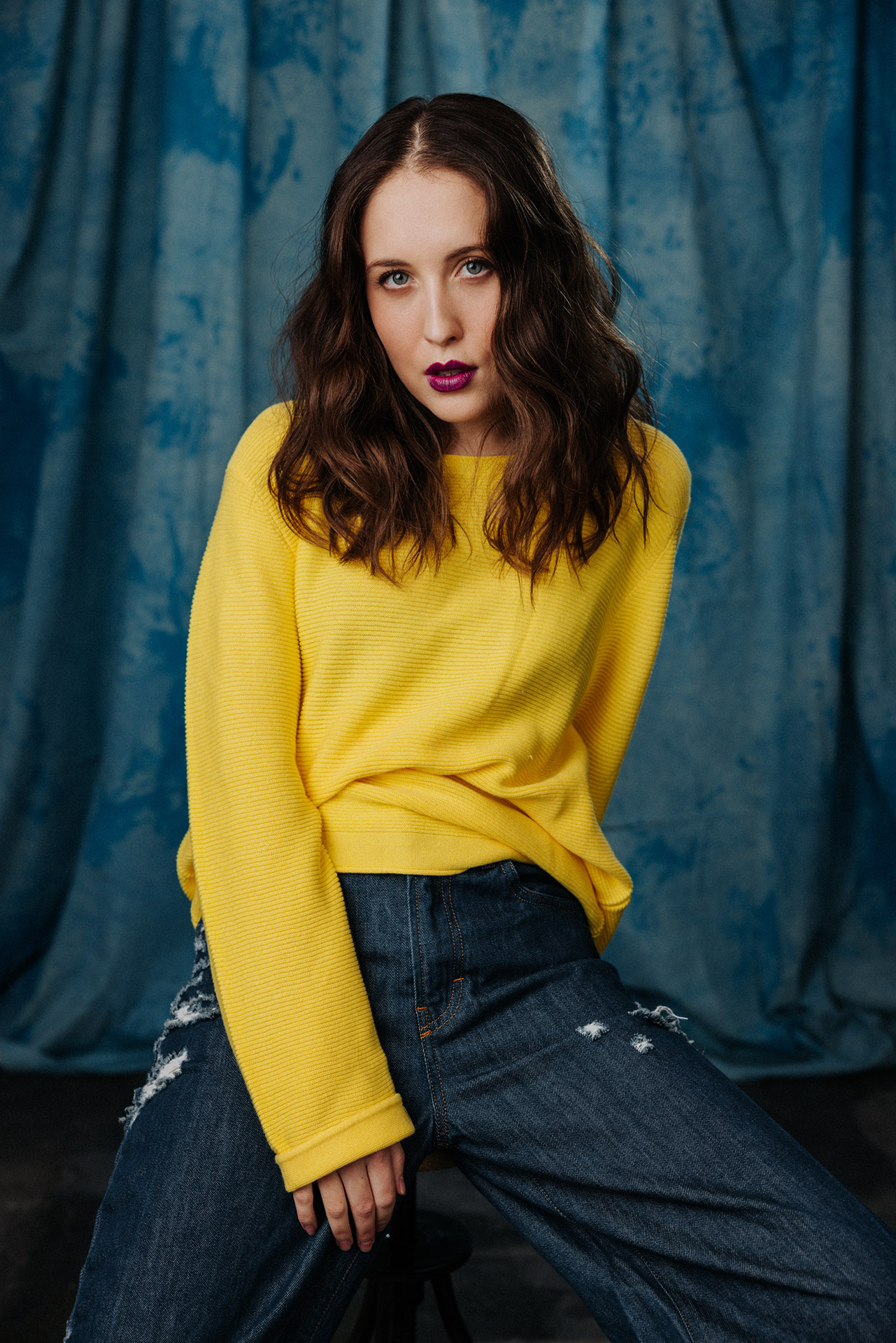
Released June 17, 2022 via Mom + Pop Music, S.I.D.E.S. is as intimate (and as intense) as its cover art suggests. Its stories pull largely from the height of the COVID-19 pandemic in 2020 and 2021, its songs carrying the weight of loss, of change, of insecurity and forced growth, of connection and disconnect, and so much more.
“The last two years have been challenging for everyone in some way or another,” Merton said upon her album’s release. “Friends and family were lost, restrictions were enforced for the first time since I’ve been alive, and mental strength had been tested to its limit. S.I.D.E.S. tells my story of how I experienced these past years. It’s a summary of the ups and many downs, the psychological challenges I faced, and somehow realizing that there will always be another side to the story – the question is just how and when do you get there.”
I’m seeing street lights and coloured walls
I’m seeing long talks we couldn’t have before
I’m seeing happy, I’m seeing clarity
I’m seeing all of the things, that I used to be
What a long long road it’s been…
I’m on the other side of it now
Lookin down, came around
Rather than pulling from her distant past, this time Merton found inspiration directly in her present-day – capturing a life that was immediate, full of familiarity and friction, comfort and anxiety. From the introductory lines of album opener “Loveback” (“Don’t wake me up ’cause I’m still dreaming of a place that I know, a place I believe in,“) to the sigh of relief that permeates the album’s cathartic finale “The Other Side,” S.I.D.E.S. proves a visceral – and equally catchy – fifteen-track journey.
It’s an album that remains as fresh and invigorating today as it did a year ago upon its release, not only because its humanistic themes are evergreen, but also because Merton’s melodically-driven songwriting lends itself to a kind of timelessness – her music blending alternative, rock, pop, and at times electronic influences into an ambidextrous and unique palette.
It also doesn’t hurt that Merton’s soul is exposed throughout these 48 minutes.
Merton’s first two albums have since earned her a combined one billion streams and three million sales, proving there’s strength and then some in being vulnerable; and to no surprise, she’s continued to stay true to herself with her latest releases, “Waste My Life” (released in January 2023, about losing yourself in another’s allure) and “Charlie Brown” (released in June 2023, described as a wake-up call to get back into the driver’s seat of your life). Even when she’s telling someone else’s story – as she does in the latter, loosely playing on the Peanuts comic strip character of the same name – Merton delves under the surface to create a multi-faceted, beautifully complex image of life forever in motion.
Atwood Magazine caught up with Alice Merton to dive into the intimate and vulnerable depths of her sophomore album.
What resulted was a conversation highlighting the power of music – for both artist and listener – as well as the balancing act every artist experiences to some degree, between maintaining authenticity in their art and creating a compelling experience for their audience.
“I just really want to do this, so that I can do this for the rest of my life and still make people happy with it, but also make myself happy with it,” Merton admits. “At the end of the day, we’re making music because we love it.”
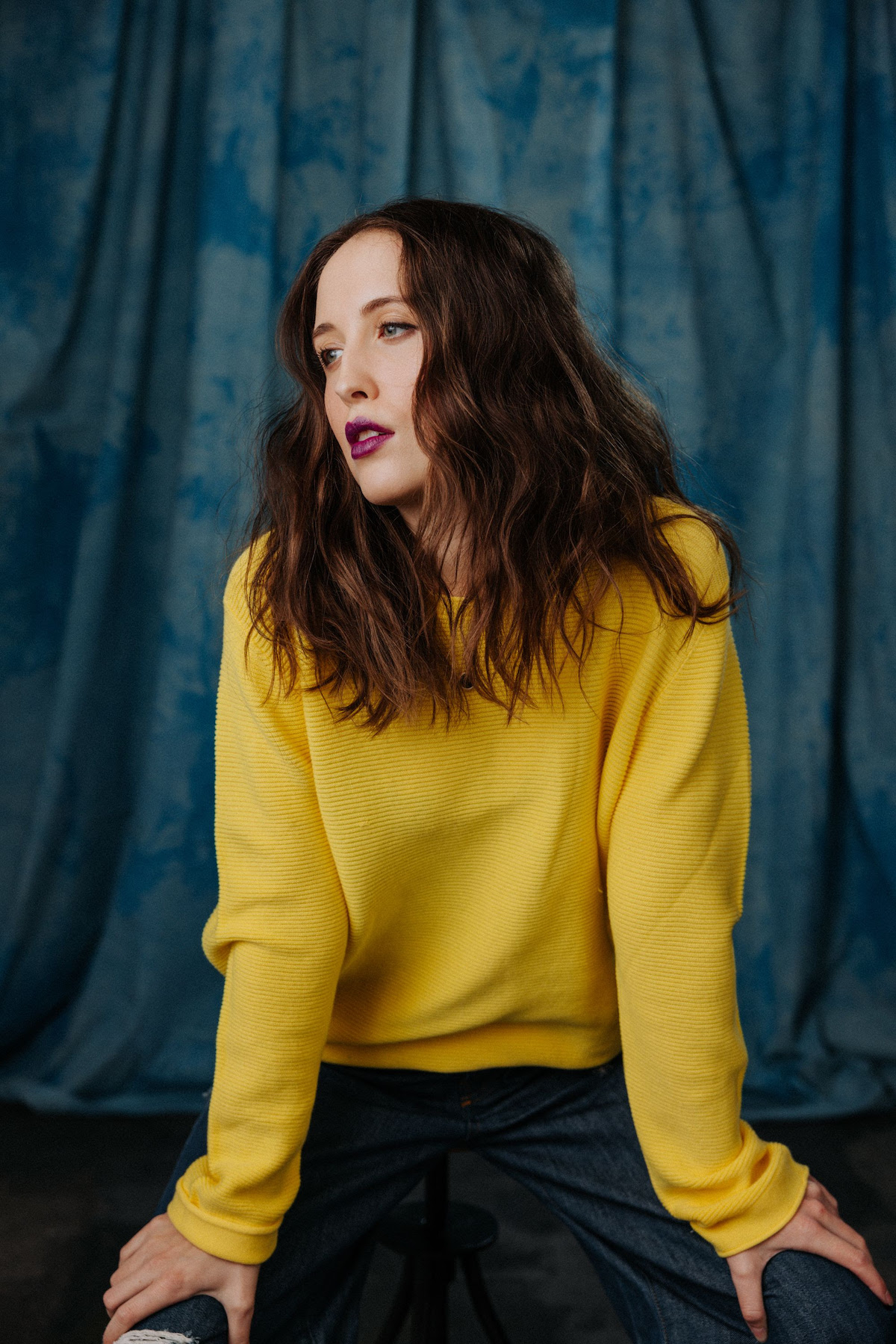
Full of unadulterated self-reflections, heated emotions, vibrant sonic colors, and tremendous depth, Merton’s sophomore LP is tailor-made to accompany life’s highs and lows – from late nights at home alone, to parties with friends, and everything in-between.
Uncover the many S.I.D.E.S. of Alice Merton in our interview below as we get under the hood of her soul-stirring, passion-fueled sophomore album to understand why these songs came to be, and how they’ve impacted her along the way.
There’s always these two sides of this – you’re doing what you love, but at the same time, you also wanna live off of doing what you love, so it is hard balancing that.
Stream: ‘S.I.D.E.S.’ – Alice Merton

Atwood Magazine: First and foremost, Alice, congratulations on S.I.D.E.S.’ release. How does it feel to have your second album out in the world?
Alice Merton: It feels good. It feels really good. It’s still a little bit fresh and a little bit nerve-wrecking. I still have kind of like pre-release or maybe post-release in this sense, but post-release jitters, where I’m just like, “Urgh, people are gonna now listen to this and then have their own opinions of it. And before it was just my opinion that mattered, and now it’s out there in the world.” And maybe no one will listen to it, maybe some people will, it’s like one of those things where I just… You have no control over it or how it’s perceived, so honestly, I’m happy it’s out and now people can either love it or hate it. [chuckle]
Was this record started before COVID hit, or is this definitively a pandemic album in the sense that it was made over the past two plus years?
Alice Merton: This was a pandemic album. This album, I think, would have sounded a lot different if it wasn’t a pandemic album but it is a pandemic album in the sense that I wrote… The first song I wrote was “Vertigo” and that was kind of like, that was just before the pandemic started, and that was kind of me dealing with my anxieties and panic attacks, ’cause I had my own kind of stuff going on before all the fears of the pandemic came with being able to perform on stage. I was getting panic attacks almost every night before a show, during the show. I felt sick, I felt like I couldn’t do this, I just felt like I physically had to stop doing this job for a while, at least. So that’s kind of what “Vertigo” is about.
And then the pandemic hit, and then I was like, “Okay, wow, do I really want to write songs anymore? I don’t really know.” And then I still continued to write. I found a producer in Berlin that kind of lived on the outskirts and I was like, “Hey, do you wanna work on a new album with me?” He’s like, “Yeah, sure.” So yeah, so that’s kind of what happened, and I was able to work with a few different people on this album, which was a lot of fun, who I hadn’t worked with on the previous album. But yeah, a very emotional album.
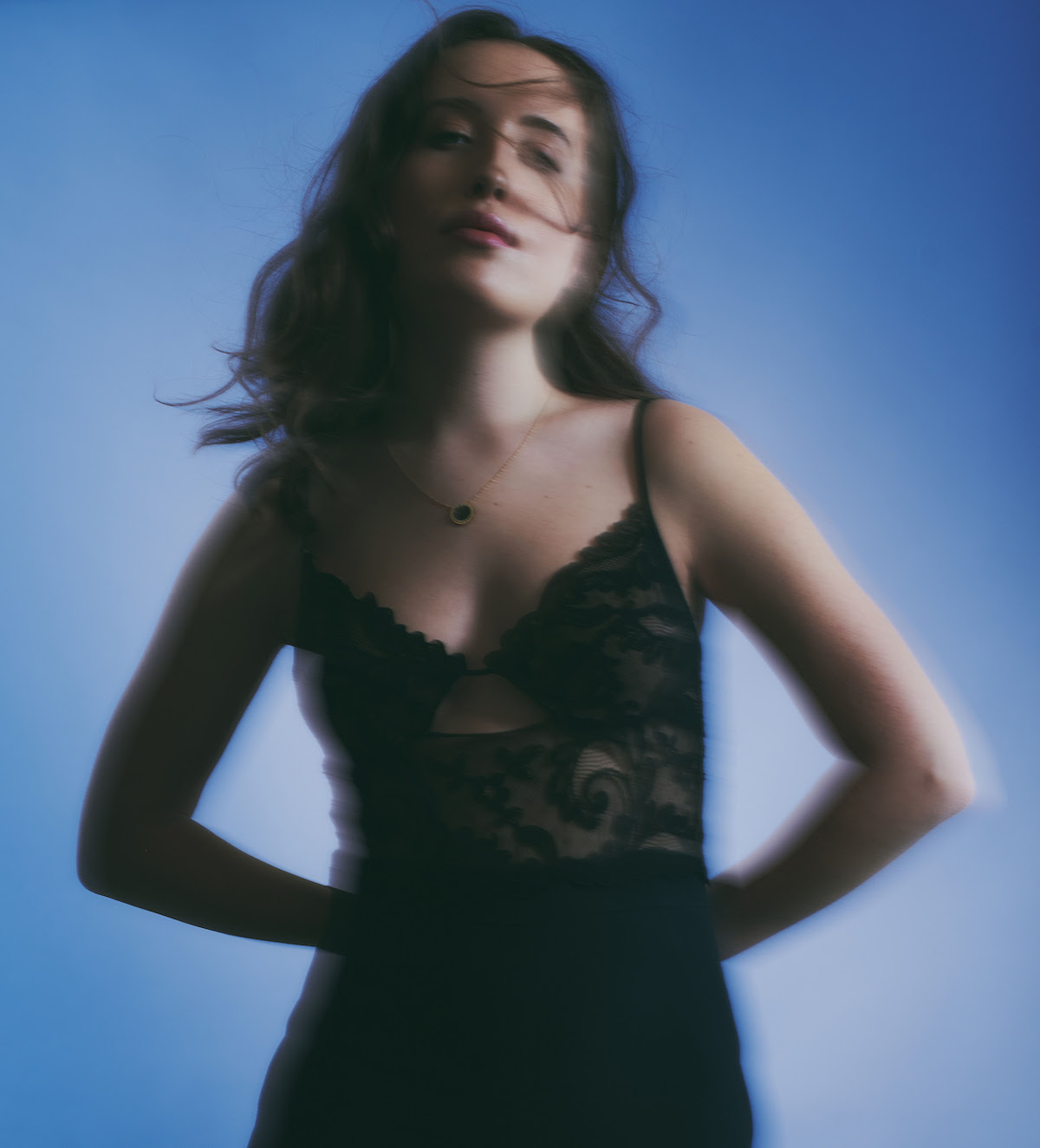
At the time of its release, it really felt like Mint was a statement of identity from you and an intimate, deep-dive into yourself, your person. If we assume that to be true, then what is S.I.D.E.S.?
Alice Merton: S.I.D.E.S. is kind of like a… In German, there’s actually a really good word for it, it’s called momentaufnahme, which is like taking a picture of a certain time of your life and kind of just keeping it as a picture of that time, and that’s kind of what this album is for me. I really feel like it was more of an introspective album where I looked at my own behavior, I looked at myself and how I was as a person during the pandemic, and even before the pandemic, and realizing a lot of what I was doing or questioning a lot of what I was doing. I think that really helped me see inside of who I am and why I act a certain way, and why I have these panic attacks. It was a lot of analytical stuff about my own self; I think I analyzed a lot.
I think a lot of songwriters find music to be a form of therapy, and it certainly sounds like songwriting was for you. Can we talk a little more about that? Was that a painstaking process for you exploring these different things? Is this something that you kind of willingly dove head-first into?
Alice Merton: No, I wouldn’t say willingly. [chuckle] Obviously, willingly in the sense I love writing songs, but there were definitely two months during the pandemic where I just didn’t wanna get out of bed. I had a lot of stuff happen in a very short amount of time. I basically went through the most traumatic break up of my life. I worked with a producer for quite some time, who then from one day to the next, basically just said, “Goodbye. I don’t wanna work with you if you’re working with other people.” And so he kind of just left my life from one day to the next, and then my grandma died a few months later, and I had no idea how to process that ’cause I couldn’t even say goodbye, and I couldn’t go to the funeral.
And so all of this stuff happened within a very short time span, and I just didn’t really want to exist anymore. I really just didn’t wanna get out of bed or see daylight or anything. So yeah, no, I didn’t really wanna go and write songs about it, but I knew that it is my job, and I felt like it would help me maybe get out of this head space, and it did! It did, actually.
When we last spoke, you told me how a lot of the time, you don't really know how you feel about something until you've written a song about it. Does that hold true for you still?
Alice Merton: Yeah, definitely. I think I saw that with “Same Team.” When I wrote “Same Team,” I realized… I felt like I was the one who’s always trying to make things better in this kind of team that we had, and I realized through the song, I was like, “We’re not on the same page, we don’t want the same things, we can’t do… This is not going to work.” And I think that really helped me see that. And, “The Other Side,” writing “The Other Side” and realizing like, “Hey, I know I’m not 100% there yet, but I know I’m gonna get to the other side. And I know I’m gonna be seeing all these beautiful things and the bright future, it’s just a matter of time.” So yeah, absolutely, I still stand by that statement.
There's a lot of darkness and hope in this record. Was making this album a painstaking process at all? Or, when it came to finally making it, did it flow the way it naturally flows?
Alice Merton: Did it flow the way it naturally flows? It’s hard to say how naturally feels like, because the first album didn’t feel natural, either. The first album felt rushed, in my opinion. I really felt like, okay, the EP was out, and then I was sent on tour directly ’cause the song on the EP kinda blew up, and I just didn’t really know what to expect. And then I came back and had to kind of finish the record and I wasn’t really sure how to finish the record, ’cause I never had done a record before. So, I definitely felt more relaxed with this record because I felt like, I know what I wanna say, and I also have the time to kind of really put the work into the productions and the vocals, and I really appreciate that I got the time for that on this record.
That's interesting what you had to say about Mint. What place does that record hold for you now, looking back on it?
Alice Merton: Looking back on Mint, I definitely feel like, as I said before, it was kind of like a chapter of my life. I feel like each album was kind of like a chapter of my life, and Mint was especially the one introducing myself. I feel like I really dove into a lot of topics of me – as a child in the song “Homesick,” and meeting my manager at university when we were just two kids studying, on “2 Kids.” I really feel though, with this album, it’s kind of like a development, but also more introspective of not telling the stories of my past, but kind of thinking about my own behavior and my own actions, and reflecting them.
You were quoted saying, “There's never one reason or one solution or one side of a story.” What do you think it is about this – the idea that there is never one side, that life always has these multiple angles – that inspired your creative side to come out?
Alice Merton: It wasn’t like I expected it to inspire me. It kind of was something that happened, where I kept thinking more and more about it, of why people do certain things, why certain things happen, why we feel certain things, how we somehow get from one phase to the next. I was really inspired by just that cycle of going from one day to the next feeling great and then somehow feeling awful again. And just this continuous up and down that kind of happened throughout the pandemic, where you’d maybe have two days of feeling great, but then suddenly some other news came up and you’re like, “Fuck, this is awful.”
And so, I kind of saw the world as a Rubik’s Cube, and it just kept changing without us having control over it. And I also saw this as people walking around this Rubik’s Cube, with everything that’s happening, that the sides are changing within it, but then we’re also physically changing sides because we’re physically developing and mentally developing as people. So, I thought that was really interesting imagery in my head, of having the world being this Rubik’s Cube changing independently from us, and then us physically going from one phase of our life to the next, to the next, without really even knowing it.
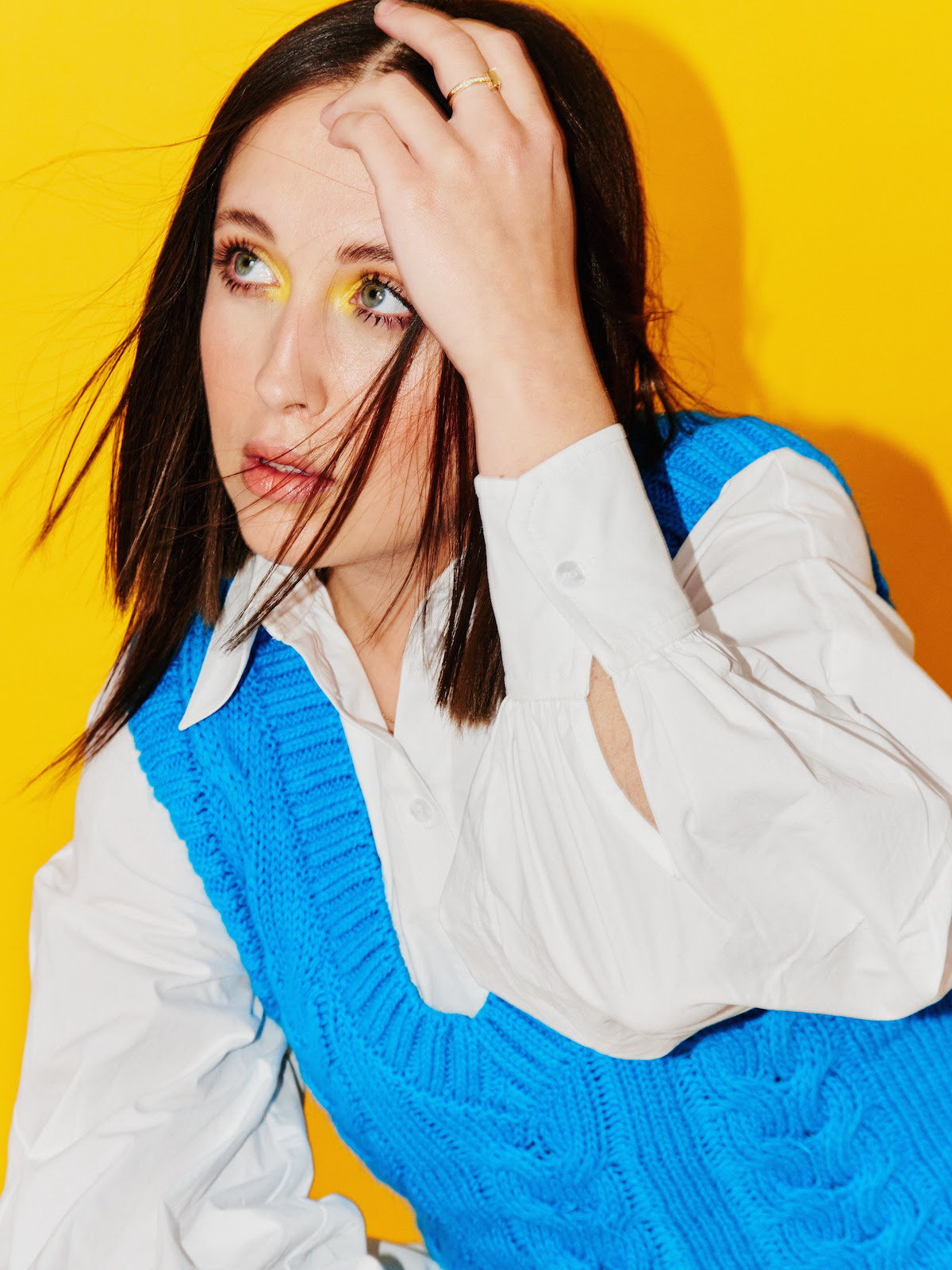
It's a cool visual imagery – music aside, that’s a fun way to look at life, and maybe one that makes the challenges and the obstacles that we face feel a little more manageable because we know that there is another side to that…
Alice Merton: Exactly, and that gave me a lot of hope in it as well, because I’ve started to suddenly see things from a bigger perspective and realise like, yeah, the world has been through a really crazy tough… We’ve been through an ice age, not us personally, but the world has had a fucking ice age, dinosaurs existed, pandemics have happened, and I just feel like there’s so much that’s out of our control, and I think we really have to kind of just enjoy the ride while we’re here.
We talked about how a lot of these songs were processing what you were going through in the moment; are there any highlights or memories that stand out from the songwriting process that capture that experience?
Alice Merton: There’d be a few highlights for me on this album. One highlight was obviously writing the last song on the record called “The Other Side,” which is at the very end of it, which helped me get to kind of a better place. “100 Stories” was about someone who kind of really shaped my life and shaped my thinking at a time where when I was going to therapy, and I really needed a little bit of help to kinda get my life back on track.
I enjoyed listening to their story ’cause they had finished school back then and traveled the whole world with a few dollars in their pocket, didn’t plan anything, and I feel like that for me nowadays just feels unimaginable and I really enjoy just kind of switching off the whole world for one night or just having it whenever we hung out and just listening to the stories of what happened on this journey.
When I was writing it, I pictured this person that just is sitting on a bus going from one town to the next, from India to somewhere in Thailand, to then, I don’t know, South Africa, just kind of traveling, but also taking it in all these beautiful experiences and realizing how complex the world is and how beautiful at the same time it can be.
You began “reintroducing” yourself late in 2021 with the song “Vertigo,” which I found really energetic and fearless. It sounds like it was putting on quite the brave face in a moment that was very scary, and during a tough time. What was the inspiration to return with this song, and what place does “Vertigo” hold for you on the record?
Alice Merton: I wasn’t sure if I was gonna put “Vertigo” on the record because I felt like it was the start of a record that I was gonna create before I knew the pandemic was gonna happen, but I still really love the song and I love playing it live and I felt like it would be a pity to just not add that chapter onto the record, and the record, not turning the record into a solely pandemic record, which it still is, but at least “Vertigo” kind of explains where I was just before I started writing the record. But I’ve always loved that song and I really feel like… I can’t really say why I put that out at the time I did, I just, I knew that I hadn’t put out something in a year, and I wanted to kinda come back with something that I truly loved, and I think we try and kind of work different markets, so like in Germany, the song wouldn’t get played at all on radio because it was just too rocky. It was a little too alternative for them. And so I had a lot of kind of negative feedback in that regard, where people were like, “You shouldn’t have put out the song. This is not gonna work on radio.”
But I really felt it, and I still stand by that. I have no idea what works and what doesn’t, but my gut always tells me what it feels and what it wants to sing and what it wants to put out as a song. So I kinda just listened to that and it said “Vertigo,” I thought I really liked the song. I love… I was sad that I couldn’t perform it live. I was kind of hoping at that point that the pandemic would kind have come to a stop, I’d be able to perform at summer, the summer festivals, and life would go back to normal and it didn’t. And so we never got to play it live.
So I was stuck recording the song, which is supposed to… I wrote it for a live setting, I remember writing and being like, “I wanna write a fucking kick ass, like bad ass live song that people are just gonna jump up and down to and go crazy to.” And then it was like, “Oh, you can’t play it for the next one and a half years.” So it’s been great playing that live again.
It's an absolutely head-banger, and I'm glad that you went ahead with it and you channeled the fearlessness in the song into the marketing process. What's it been like actually finally getting to play that song live, it does live up to the hope and the hype?
Alice Merton: Absolutely, it’s been amazing playing that live. Yeah, no, that… That one really is fun. Like, I have to admit that one’s a great one to play live.
I'm glad to hear that. You followed up with “Hero” and “Island,” which I thought was really cool, because both songs kind of offer quite different sides to the album, and I really like that. I was really struck by the lyric opening “Hero”: “Sometimes, I wish I was the hero in your story. I'd save you from yourself.” Would you mind sharing a little bit more about what inspired that track?
Alice Merton: When Phoebe Bridgers came out, I don’t know if it was before or after my track, but the savior complex, I have that as well, where I feel like I… When I’m with someone, I want to kind of be there for them. I want to be their hero in their story. And I just knew in this scenario, I was never gonna be that, even as much as I wanted to. And it really drove me mad. Like, it made me so upset to see someone struggle so much and not be open for the help that I was offering to give. And I think that’s just such an awful feeling to have, when you know that you’re helpless, kind of, when you feel like you could do something, but that person just won’t accept it. So that was a really emotional one for me to write, because I felt like I kept hitting walls, and I hate that feeling.
Your album opens with the song “Loveback,” and the first word that came to my mind when I heard that song was redemption. It feels like the phoenix is rising from the ashes. This was the last single that you released, and it sets the scene on the album. Why open with this song?
Alice Merton: Why did I open with this song? I think the reason I decided to open with this song is because I feel like it’s very unexpected, the chorus. So like, you think you understand the song, ’cause you hear the verse and you’re like, “Oh, I know what’s gonna come in the chorus.” And then it’s like, “Wait, what?” And I think that’s kind of this album. Like, I feel like people are like, “Oh, I understand what’s coming. Oh, wait, what?” And… [chuckle] And so I think it was kind of just a good… I could have let people into it gradually, into that feeling of like it’s gonna be a little bit different, but instead, I was like, “Nope! Gonna go full on.” And I think that’s what “Loveback” does. Like for me, it’s still kind of fun. I love the chorus. I love how it kind of goes from this beautiful… Like, guitar-esque… Very, very vague, kind of majestic feeling to very simplistic in the chorus, almost like child… Child-like voices. And then going back and forth between those two levels, so… Yeah, I think it was more of like the element of surprise, where I was like, “You know what? During this pandemic, so much happened, I’m just gonna make an album that I think is weird and fun and cool, and I hope you enjoy it, and if you don’t, then I’m sorry.”
I think you hit all the marks there. It's a really engaging listen, and for folks especially listening to the album, it sets you up for all that’s to come. If there were any one or two songs that you would definitely want people to listen to on this album, what would you unmistakably want them to hear?
Alice Merton: I think “The Other Side,” for me, is one of those ones where I really feel like I want people to know this song, ’cause it really helped me in a time where I needed it, and I feel like when you’re on that… When you’re in that hole of not really realizing that there’s actually beautiful sights outside of this hole, but you can’t see anything else, I think it would have really helped me to have this song, and to play it and to know that I’m gonna get to the other side.
It's beautiful, how music can be there for us and be that anchor for us when we need it, both writing music and listening to music. Are there any artists or songs that hold that place for you?
Alice Merton: Like, that helped me get out of a certain headspace, you mean?
Yeah, songs that you turn to in tough times?
Alice Merton: The Killers have always kind of been one of my favorites to turn to in tough times; I don’t know why. I just love their vibe. Regina Spektor has always been the inspiration and the reason I started writing songs. And ABBA; I quite like ABBA, and Queen has helped a lot in those times – so yeah, I’d say those are four.
All classics!
Alice Merton: [laughs] I think I need a classic to help me get out of a really dark time. It needs to be quite a good song.
Are we talking “Mr. Brightside” with The Killers, or deeper cuts?
Alice Merton: No… Do you know the song “Be Still”? I really love that one. I love “When You Were Young” as well. “When You Were Young” always just kind of puts me back into the space of when I was younger, though, like when I listened to it for the first time. But yeah, “Be Still” always calms me kind of, and helps me get out of a certain head space, the line, “Don’t break character, you’ve got a long way to go,” or something, I think that was it – I really like that one, ’cause I feel like it is a reminder to stay true to myself and to what I believe in as an artist and what I feel when everyone in the music industry is like, “No, we need singles, and it has to be under three minutes or two minutes” or I don’t know. And then it really helps me to kind of just be like, “You know what, I’m gonna stay true to what I believe in,” and I know there’s gonna be phases where people like the music and they won’t like the music, and that’s just kind of like this up and down of like, there’s artists that put out albums and I love them, and there’s artists that put out albums sometimes and I’m not a huge fan of this one. I think that really helps me kind of stay focused and just continue on making music regardless of what other people around you say.
Brandon Flowers has that way of inspiring us to be our best selves, and... I don't know how he does it, but I'm glad the band themselves are still doing it.
What you were just talking about, it sounds really tough, balancing the art of songwriting, which is such an intimate and personal process with the commercialization of music recording. How do you balance those two demands? For it mean something to you and to be personal to you with... the commercialization? With the needs for other people to listen?
Alice Merton: I think about this a lot, and I don’t have an answer to that question, because in the past, I’ve always kind of just done my thing and I’ve been lucky that the first time I did it, it struck a little bit of a chord with some people. And so there’s a part of me that just keeps thinking, just carry on that way, and make the music that inspires you in that moment, because it is kind of, as I said, a momentaufnahme. Like a picture of that moment. That’s when an album is or a song is, and there’s no point of you looking back at it being like, “Oh yeah, it was successful because this fit into the zeitgeist of what people were wanting at the moment,” and I think about that a lot.
How can I make music that I love, but at the same time, hope that it’s still successful amongst people? I couldn’t perform things that I didn’t like myself. What about if everyone likes a certain style and I just don’t like it, but I then write it and then I have to perform it for the rest of my life? I don’t know, I find that a really difficult thing, and I don’t even know how to describe that.
I’m too stubborn to do that, I think. I think I’d rather just put out, even if no one likes the same kind of music that I like anymore, I’d still probably still put it out because that’s the only music I wanna perform. I don’t know if it’s smart. It could be a really stupid thing!
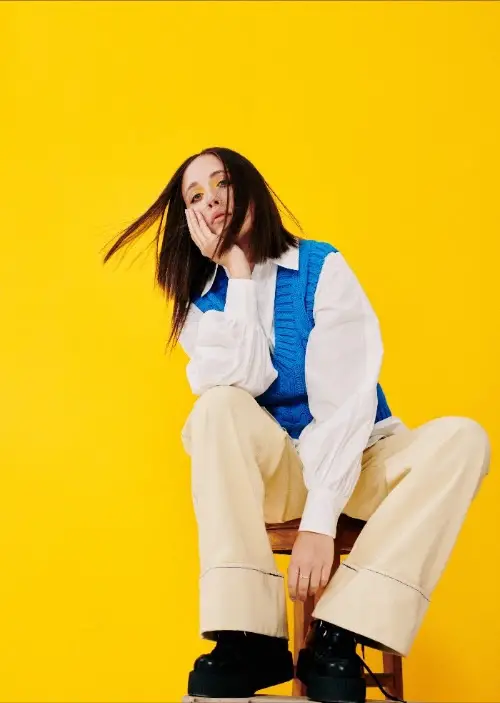
At least you'll be happy. What do you want to sacrifice for your happiness, and will this commercial success mean true satisfaction in life?
Alice Merton: I’ve come to a point where I am comfortable, and I can live off of what I do. I don’t want a mansion, I never wanted a mansion. I don’t need a mansion. I need to earn enough money so that I can afford to have an apartment, to feed myself, go out for dinner now and then – there’s no desire in me that’s like, I want a yacht.
I just really want to do this, so that I can do this for the rest of my life and still make people happy with it, but also make myself happy with it, because at the end of the day, we’re making music because we love it, not because we’re trying to get everyone on our side. Obviously I want other people to love it, but I’m not gonna force-feed something that they don’t want. I think it’s just about matching my love and their love for something, and sometimes it works and sometimes it doesn’t. That’s how I see it, but maybe in three years time I’ll see it differently, I don’t know.
For you, in order for other people to love it, you have to love it first, and then whatever happens, happens, but at least you put it out believing in it to begin with. It's the airplane rule with masks, you have to help yourself before you help others.
Alice Merton: Exactly. Of course I’m also making music with the hope that people are gonna like it, but at the same time, if something else is popular at the moment, I’m not gonna just do that because everyone else loves it.
“Vertigo” is a good example of that, like you believed in it and you wanted to create a big song, but it's not like a meaningless massive anthem. It has purpose to it. It's actually a very, very vulnerable song that I would say is one of the most obviously vulnerable tracks on the record, just lyrically, you lay it all out, panic attacks and all, and if you can do that with a song and inspire a massive crowd response that way, which I hope you do time and again, then the sky's the limit. Why not? Why not go that direction?
Alice Merton: Yeah, we’ve only got one life. Especially during the pandemic, I’ve realized I might as well take some risks while I’m doing this while I can, because otherwise I’m just playing everything on the safe side and that’s not gonna be fun and it’s not gonna be exciting and experimental. There’s always these two sides of this – you’re doing what you love, but at the same time, you also wanna live off of doing what you love, so it is hard balancing that. I 100% agree and I don’t have a solution for it, but, for now…
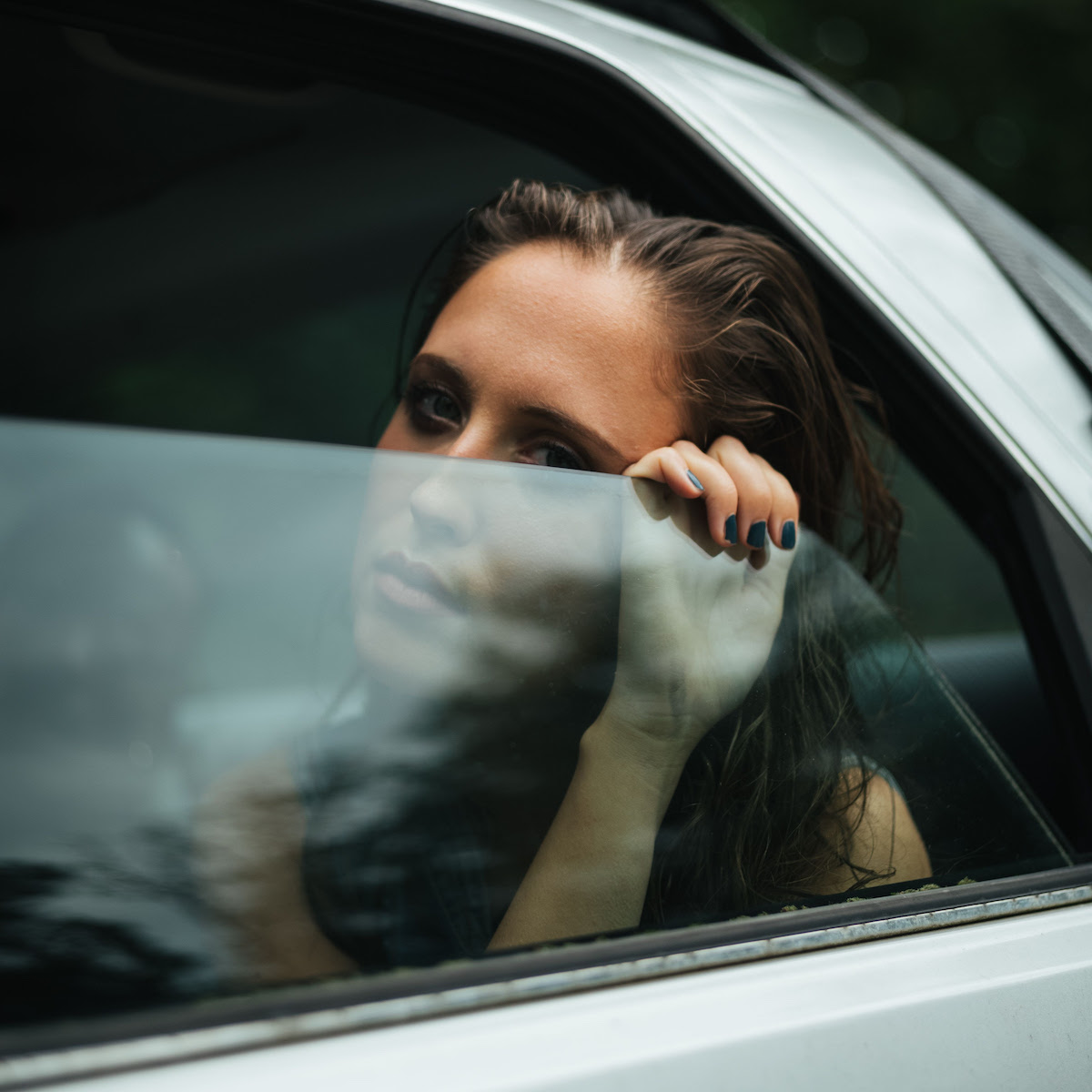
I respect the things you do for yourself, nonetheless. I think it's exciting and it makes this album feel very real, and I don't know what it is about us audiences wanting music that is “authentic” and “real” and “raw,” but it really does feel like we get a very clear picture of who you are – a snapshot, as you described. Living in the moment. What do you hope listeners take away from S.I.D.E.S., and what have you taken away from creating it and now putting it out?
Alice Merton: I hope listeners take away that there is strength in being vulnerable and open about emotions, and that we all go through really awful phases in our life and really beautiful phases, but when you’re in that awful phase, it really helps to kind of tell yourself, you’re gonna get out of it. There’s no if or what, or maybe, or what about if I do… It’s like, you are going to get out of it. You just need to hold tight and wait for that lifeboat to come.
And that's exactly what you did in this album. Beautifully said, thank you so much for your time. I wish you the very best!
Alice Merton: Thank you so much, Mitch. It was lovely talking to you. I had a lovely conversation.
— —
:: stream/purchase S.I.D.E.S. here ::
:: connect with Alice Merton here ::
— — — —

Connect to Alice Merton on
Facebook, Twitter, Instagram
Discover new music on Atwood Magazine
© Aykut Aydoğdu
:: Stream Alice Merton ::


 © Aykut Aydoğdu
© Aykut Aydoğdu